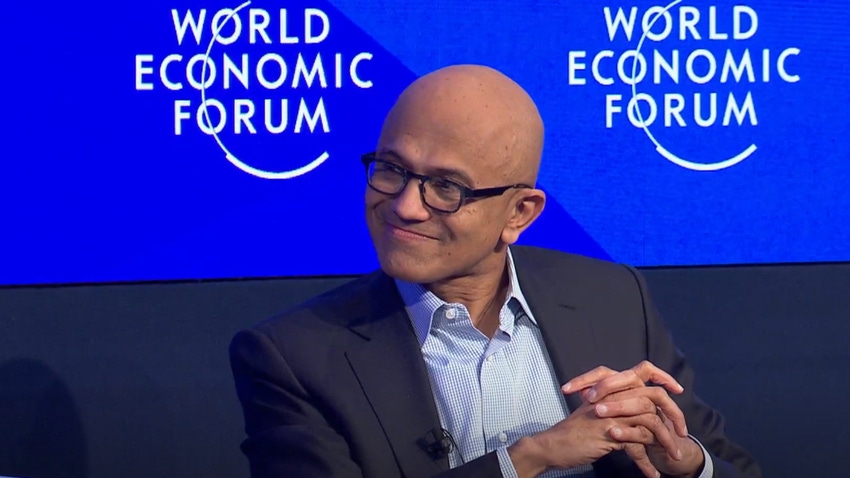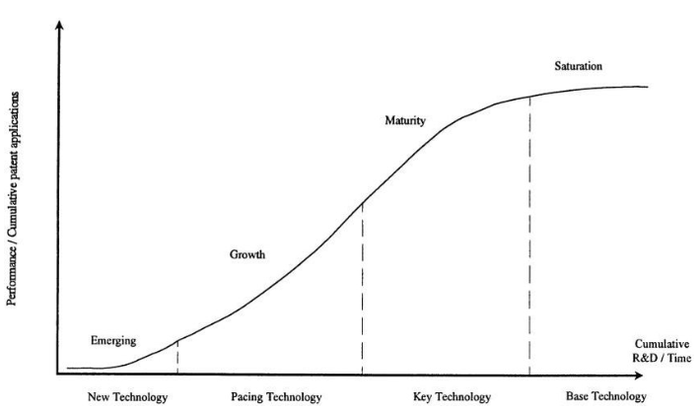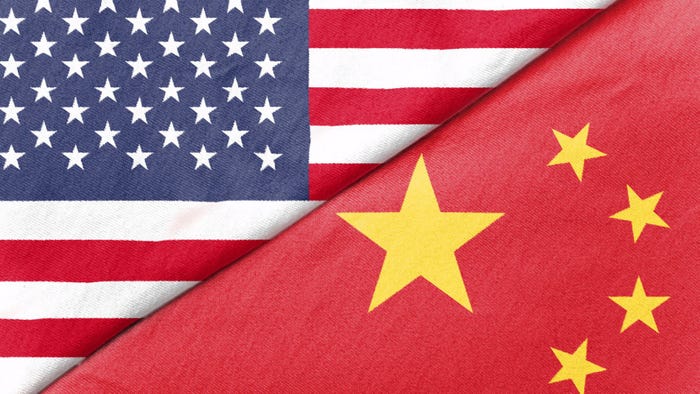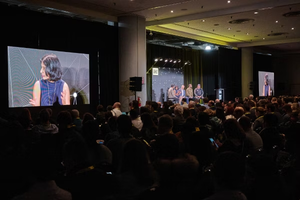Microsoft CEO: AI Will Go Mainstream In 'Months' Not Years
Here are 5 insights shared by Satya Nadella at Davos

Microsoft CEO Satya Nadella sees the AI revolution going mainstream in “months” compared to the decades it took for the internet, cloud and mobile technologies to become broadly diffused globally.
In a fireside chat with Klaus Schwab, chair of the World Economic Forum in Davos, Switzerland, Nadella shared this and other thoughts about AI, the metaverse, quantum computing, hybrid work and cybersecurity.
The conversation comes as Microsoft gets ready to lay off 10,000 employees - around 5% of its total workforce - as it seeks to rein in costs in a slowing economic environment. In a blog, Nadella wrote that as belt-tightening occurs throughout the global economy, Microsoft nevertheless is positioning itself for the future.
"The next major wave of computing is being born with advances in AI, as we’re turning the world’s most advanced models into a new computing platform."
Meanwhile, Nadella also revealed that Microsoft is planning to incorporate the AI capabilities of ChatGPT and those developed by the chatbot's parent OpenAI into all its products, in a separate interview with The Wall Street Journal in Davos. "Every product of Microsoft will have some of the same AI capabilities to completely transform the product," he said.
Here are five insights from Nadella about what's next for tech:
1. Artificial intelligence is at the beginning of a new S curve, signaling rapid growth ahead.
The technological life cycle is often depicted along an S curve: It starts with nascent growth, then accelerates into exponential growth until it matures and levels off.
“We have essentially an emergence of a completely new set of technology, which I think is going to be a revolution,” Nadella said.
The internet took 30 years to go mainstream globally while the cloud and mobile took 15 years. As for AI, “we’re talking months,” he said.
Nadella cited the case of Andrej Karpathy, Tesla’s former autopilot director, who tweeted that he used GitHub’s Copilot to write 80% of his code. (Copilot is being sued for alleged copyright infringement.)
Meanwhile, Nadella said he also saw a demo of a rural farmer in India accessing a government program by speaking to a GPT-trained bot in an app in his regional language.
These two are examples of the wide reach of AI, he said.

Source: researchgate.net
2. Quantum computing is still a ways away but there are breakthroughs.
Microsoft is building a general purpose quantum computer, which needs a sufficient number of stable qubits.
“It’s not here today but the software stack that needs to be built for quantum is getting built actively,” Nadella said. “The fact that you can simulate quantum algorithms on classical is one place we can in fact start benefiting.”
3. Metaverse will usher in new capabilities in areas such as education.
Combining metaverse and AI will enable people to learn with others across space and time, Nadella said. In addition, having an AI coding tool like GitHub’s Copilot in the mix will transform education as it helps “diagnose the conceptual mistake a student is making right when they make it and then help them overcome that.”
“This notion of collaboration and learning together is where we can make a real leap forward,” he added.
4. Zero trust is key to better cybersecurity.
A zero-trust cybersecurity policy is the best way to protect against cyber attackers. “The best way for you to have security is to assume breach and then think about your defense,” Nadella said.
He admits that zero trust is “kind of a paradox.”
Asked how companies can prepare themselves for the continuing onslaught in cyberattacks, Nadella said to use the cloud. “One of the ways to be secure is not to be fighting this alone.”
By using a cloud provider, companies will have access to modern infrastructure and an environment “well-suited” to fighting cybercriminals, he added.
5. Companies are still finding the right balance for hybrid work.
The corporate world is not going back to pre-pandemic 2019 and neither will the workplace resemble 2020 when no one met in person.
However, three years later, “we’re still learning” to find the balance, Nadella said.
Currently, there is what he calls productivity ‘paranoia’: Business leaders question whether workers are truly productive while employees believe they are burned out.
The solution is “more data and less dogma,” Nadella said. “Outcomes matter. Focus on outcomes and rediscover new patterns of successful work.”
Read more about:
ChatGPT / Generative AIAbout the Author(s)
You May Also Like





.jpg?width=300&auto=webp&quality=80&disable=upscale)
.jpg?width=300&auto=webp&quality=80&disable=upscale)
.jpg?width=300&auto=webp&quality=80&disable=upscale)

.jpg?width=300&auto=webp&quality=80&disable=upscale)